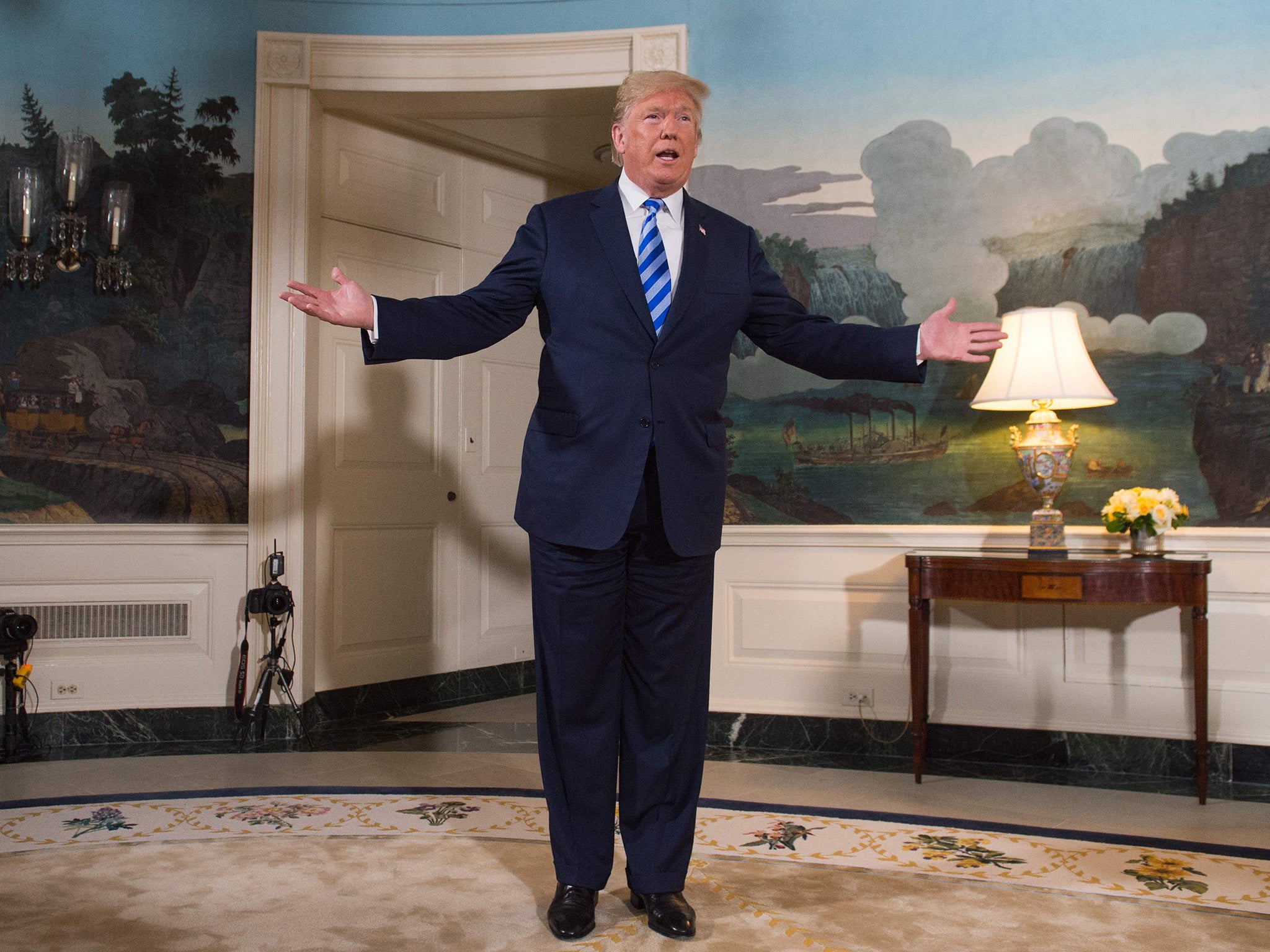Yes, Iranians are furious with Trump but they're also angry at Israel, Saudi Arabia and their own leaders
Ultimately, when there is no plan B for the region in the absence of the previous nuclear deal, it will be ordinary people – especially in Iran – who pay the price


For years, Iran was under the harshest sanctions ever imposed on a sovereign state by the United Nations, the US and other Western powers, yet Tehran did not give up its nuclear ambition and nor did the pressure overturn the regime despite it suffering severe economic hardship and threats.
So it was that the world eventually concluded that the best way to contain Iran’s nuclear ambitions was to negotiate a curtailment of the country’s atomic programme in exchange for the removal of sanctions and economic improvements.
Not many Arab countries in the region supported the talks with Iran – which I covered extensively as a journalist – but at the same time they did not reject the deal when it was reached on 14 July 2015.
For the United States and its allies there was no better alternative than curbing Iran’s nuclear programme peacefully. The alternative was confrontation with a nation of 80 million people whose national pride and identity speaks louder than their objection to the Islamic Republic.
However, whether due to bad luck or lack of good diplomacy, the government of Hassan Rouhani didn’t seize the opportunity to improve relations with the US while President Obama was still in office. What’s more, the regime’s pride in having achieved the deal led it to act arrogantly towards its regional neighbours.
Early in his presidential candidacy, Mr Trump spoke dismissively of the Iran deal and continued repeating the message ever more loudly, claiming he would rip up the agreement once he entered the White House.

Iran didn’t heed his warning as it was busy in Syria and Iraq, and dealing with Hezbollah in Lebanon and Houthis in Yemen. The regime left it to the European countries to deal with Trump and his anger.
That President Trump has now confirmed his decision to withdraw from the deal should therefore come as little surprise, even though its delivery was previously considered a stunning achievement for the international community after 12 long years of negotiations
It should be said, however, that Iranians woke to the news frustrated and upset not especially with Trump, but rather with their own political leaders for their failure to properly manage the deal. Iranians are also angry with Saudi Arabia’s leaders, who they believed played an important role in Trump’s decision.
Another who played a crucial role was Benjamin Netanyahu, Israel’s prime minister, who convinced the US president to dismiss the Iran deal due to the threat the Islamic Republic is said to pose to the state of Israel.
Bibi’s grand disclosure of tons of documents last week – evidence, he said, of Iran’s secret plan to make a nuclear bomb years before the deal was made in 2015 – gave Trump cover for the decision.
Recent demonstrations in Iran against the regime, and Iran’s behaviour against US allies in the Persian Gulf, gave Trump further excuses to execute his wishes despite the strong objections of his Western allies.
For me, living in the region for quite a few years and mingling with Arab populations, I haven’t seen any hatred towards Iranians. No ordinary people wish for this nation to be ruined or attacked by foreign forces.
They may hate clerical regimes interfering in their internal affairs and meddling in wider Arab issues but Israel is the number one enemy among most Arab populations – from intellectuals to ordinary people. Arabs had three major wars with Israel and lands which Arabs regard as theirs have been occupied by Israelis ever since. Arabs have not had such experiences with Muslim Iran.
It’s interesting therefore seeing the Iranian regime portraying Saudi Arabia and its main allies as the key lobbyists against the Iran deal. Public reaction has reflected this sentiment.
It’s true of course that the major Arab countries welcomed Trump’s decision to walk away from the Iran deal, but their main objection was very different to the Israeli objection.
Ironically, this new animosity between Iran and Saudi Arabia could create a better opportunity for Israel to achieve a favourable deal with the Palestinians, now that it is clear Trump is prepared to curb Iran’s regional influence.
Ultimately, when there is no plan B for Israel or the region in the absence of the Iran deal, only ordinary Iranians will pay the price. As the regime becomes more militarised it will inevitably tighten its grip on society in order to shatter any opposition voices advocating reform. Without the deal, Iran is a more dangerous place for the region; but mainly for its own people.
Camelia Entekhabifard is a journalist and political commentator who covered the Iran nuclear talks between 2013 and 2015. She is the author of ‘Camelia: Save Yourself By Telling the Truth’ (Seven Stories Press, 2008); @CameliaFard
Join our commenting forum
Join thought-provoking conversations, follow other Independent readers and see their replies
Comments
Bookmark popover
Removed from bookmarks